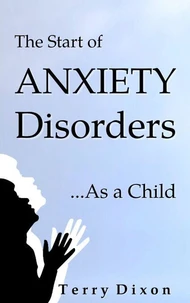Research shows that over 50% of anxiety problems start before the age of fourteen. The way we feel about our self in childhood and adolescence can stay with us a lifetime and those who are frequently made to feel insecure and vulnerable when growing up (or later in life for some) are surely more susceptible to develop anxiety-related problems down the line. If we go through a period in life where we are constantly 'put down', 'picked on' or made to feel threatened in any way it's not surprising that anxiety (our inner self-protection instinct) will ramp up and we'll become more nervous - constantly wary and alert, always on the look out for danger in order to protect our self.
However, threatening situations not only scare us, they also make us feel bad (upset, hurt, insecure, weak, afraid, small, inadequate, sad, angry, confused... a whole myriad of negative feelings). And if we feel bad often enough, for long enough, we can start to believe that we feel this way because there is something inherently 'bad' or 'wrong' or 'not good enough' about us. Over time, self confidence crumbles.
This highlights a critical component in the development of anxiety problems that hasn't really been considered until now: the way we feel about our self deep down and how this becomes inextricably linked to being scared. It is this, not illness, that lies at the heart of most anxiety problems today. It also lies at the heart of their cure.
Research shows that over 50% of anxiety problems start before the age of fourteen. The way we feel about our self in childhood and adolescence can stay with us a lifetime and those who are frequently made to feel insecure and vulnerable when growing up (or later in life for some) are surely more susceptible to develop anxiety-related problems down the line. If we go through a period in life where we are constantly 'put down', 'picked on' or made to feel threatened in any way it's not surprising that anxiety (our inner self-protection instinct) will ramp up and we'll become more nervous - constantly wary and alert, always on the look out for danger in order to protect our self.
However, threatening situations not only scare us, they also make us feel bad (upset, hurt, insecure, weak, afraid, small, inadequate, sad, angry, confused... a whole myriad of negative feelings). And if we feel bad often enough, for long enough, we can start to believe that we feel this way because there is something inherently 'bad' or 'wrong' or 'not good enough' about us. Over time, self confidence crumbles.
This highlights a critical component in the development of anxiety problems that hasn't really been considered until now: the way we feel about our self deep down and how this becomes inextricably linked to being scared. It is this, not illness, that lies at the heart of most anxiety problems today. It also lies at the heart of their cure.

 , qui est-ce ?
, qui est-ce ?